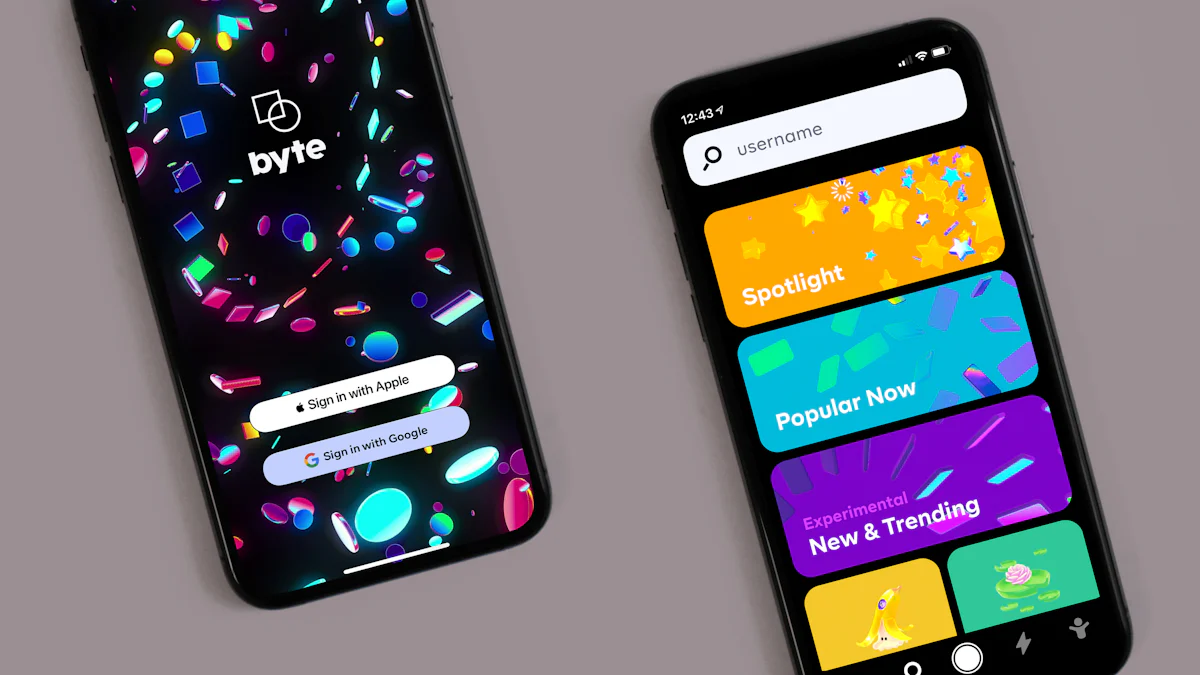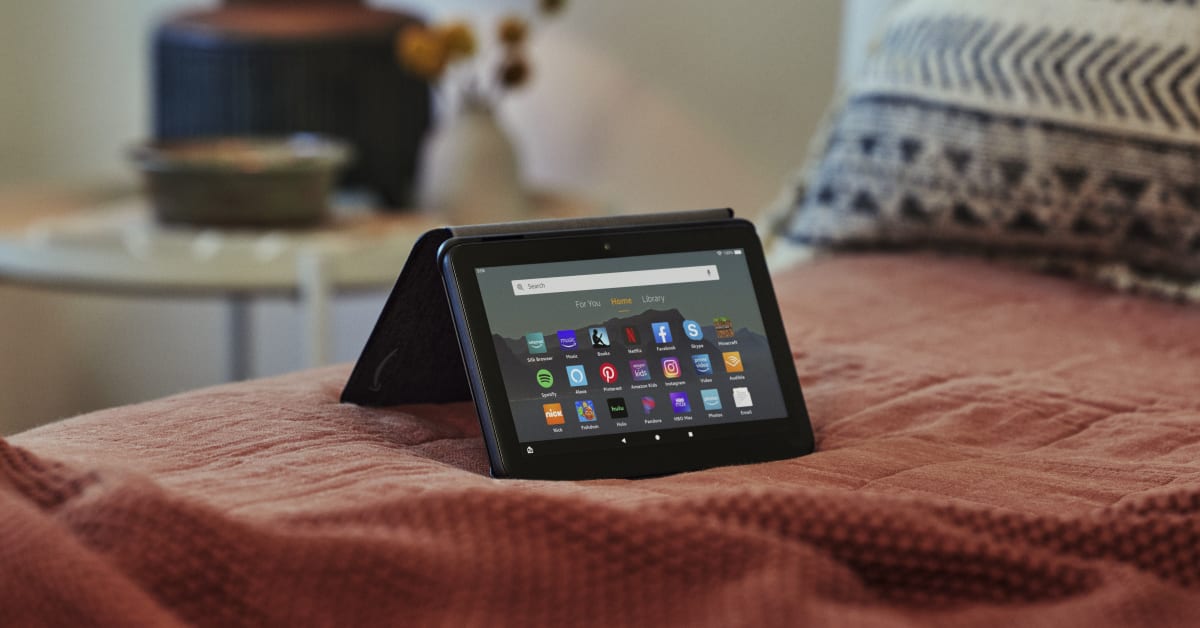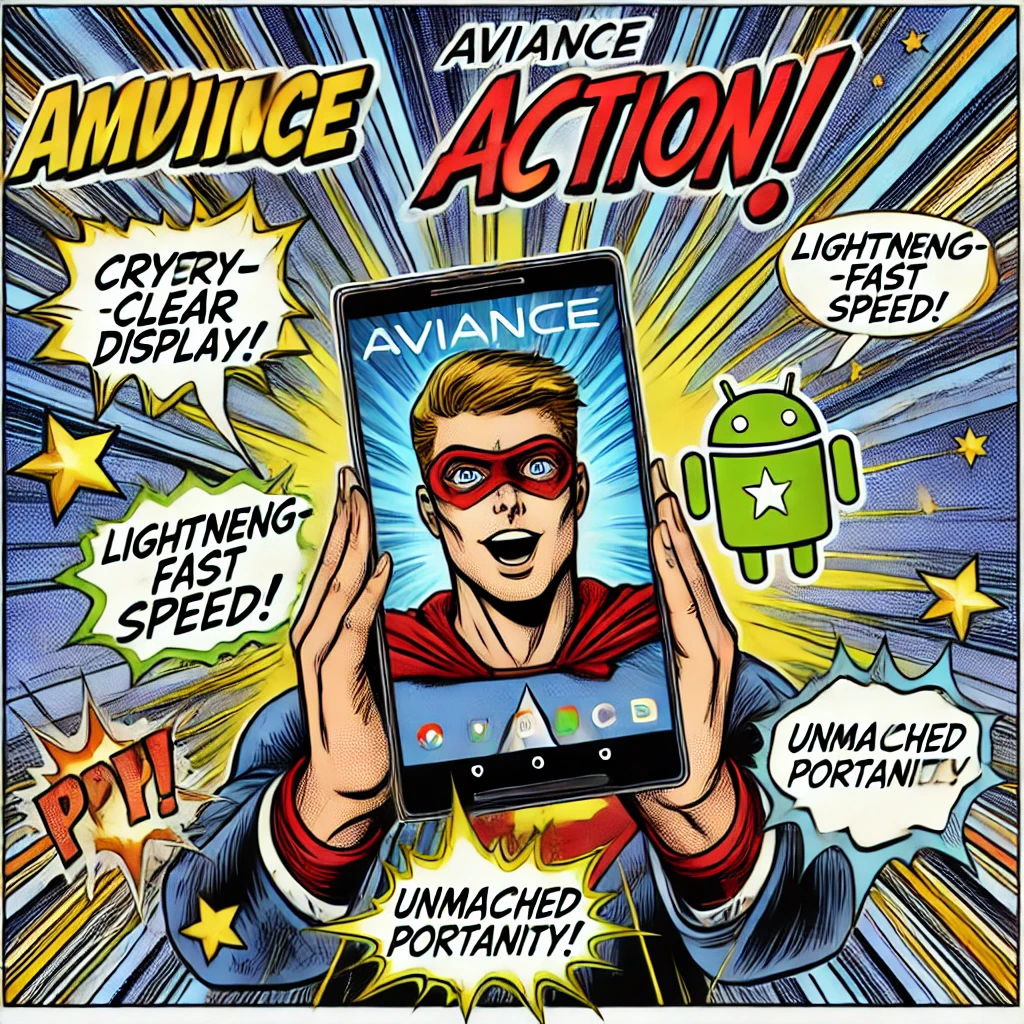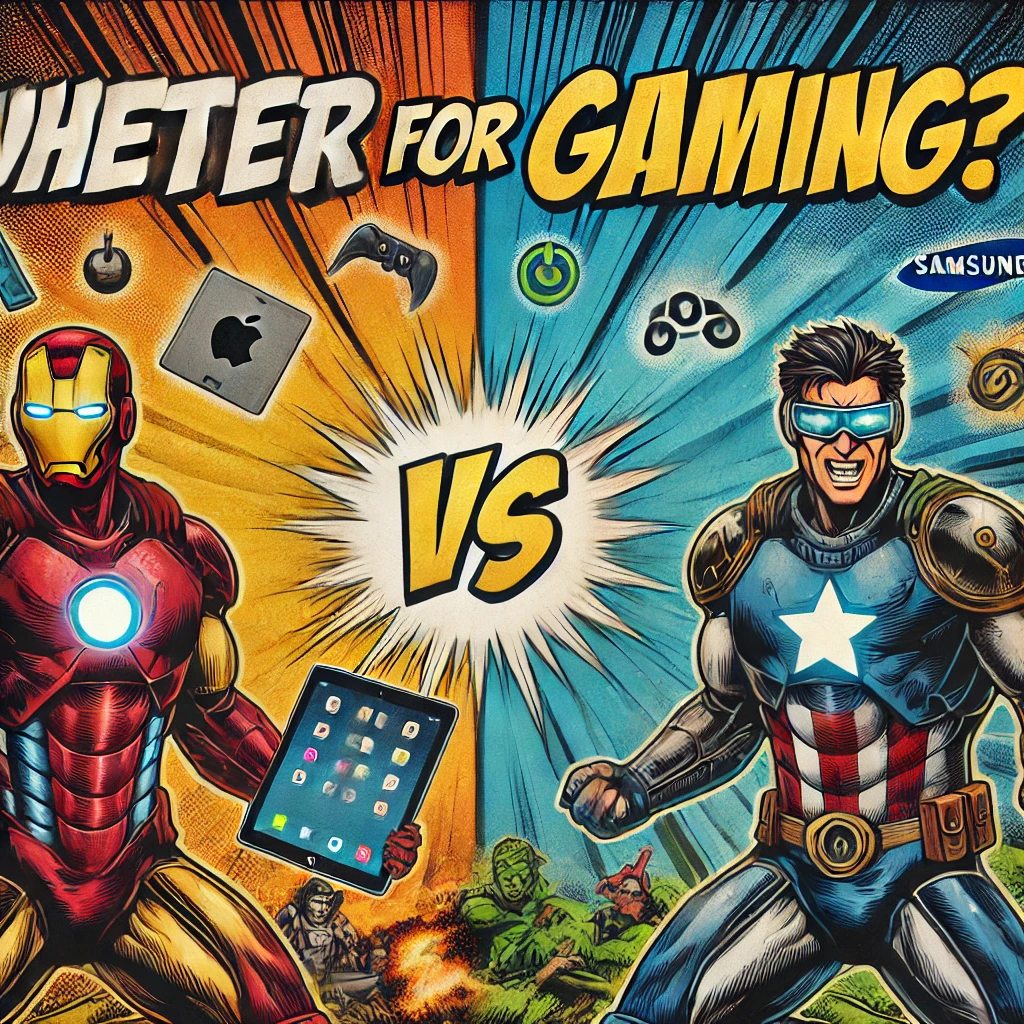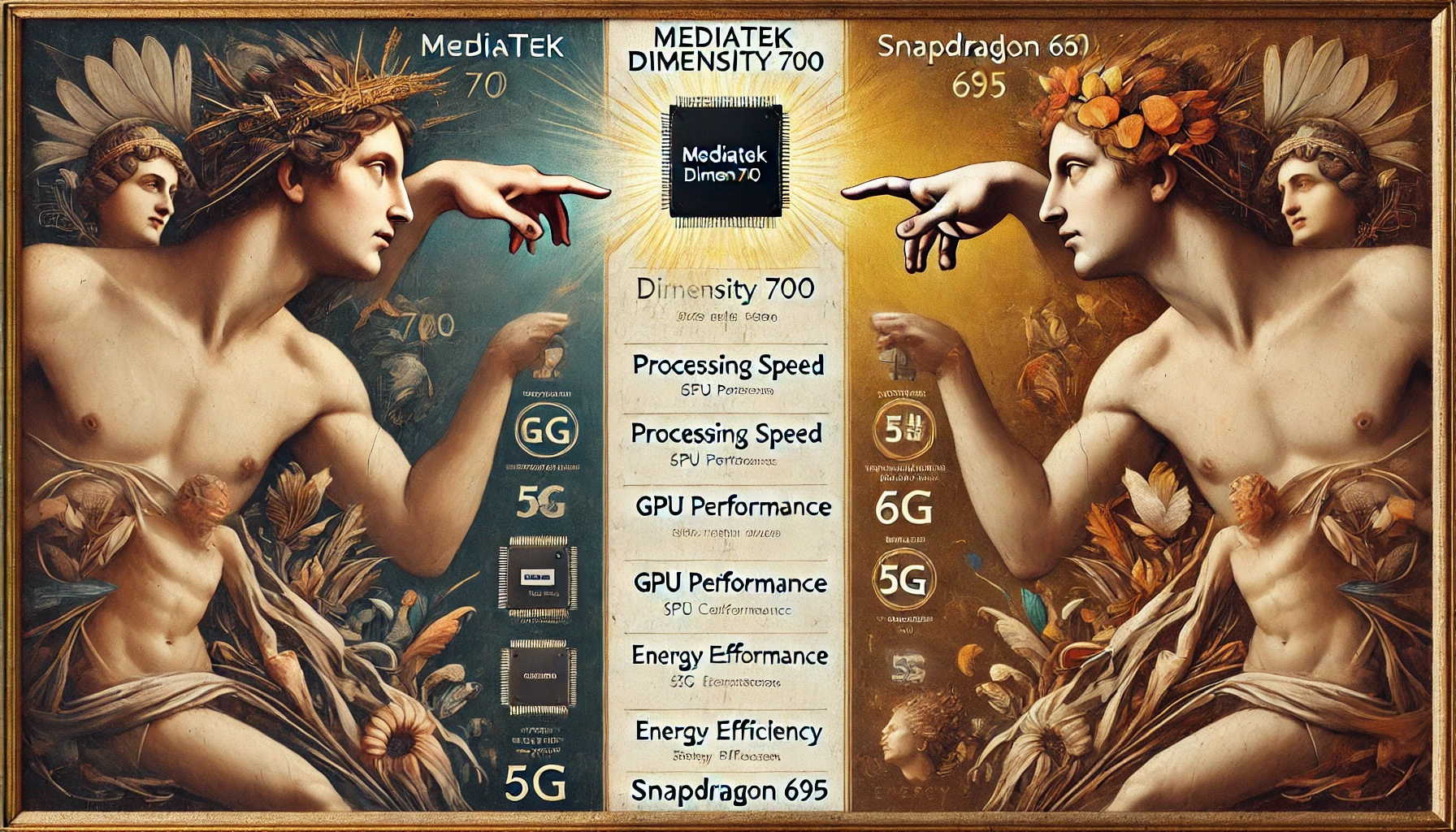- Explore
- Blog
- The Best Android Video Chat Apps
The Best Android Video Chat Apps


Finding the right app for video calls can feel overwhelming with so many options available. Whether you want to connect with friends, collaborate with colleagues, or prioritize privacy, Android video chat apps offer something for everyone. Apps like Zoom and Messenger stand out for their versatility and ease of use. Others, like Google Duo, are praised for reliability, while Signal and Telegram focus on secure communication. These best video chat apps combine features, usability, and affordability to meet your needs. Dive into the world of the best Android video chat apps and discover how they can transform your conversations.
Key Takeaways
Choose a video chat app based on your specific needs, such as group size, features, and security preferences.
Look for apps that offer user-friendly interfaces to ensure a smooth and enjoyable video calling experience.
Prioritize security by selecting apps with end-to-end encryption, especially for sensitive conversations.
Consider the pricing model; many apps offer free options, while others provide premium features for a fee.
Ensure the app is compatible across multiple devices to facilitate seamless communication with friends and colleagues.
Explore unique features like screen sharing, interactive games, and fun filters to enhance your video chat experience.
Evaluate participant limits to find an app that accommodates your group size, whether for casual chats or professional meetings.
Criteria for Selecting the Best Android Video Chat Apps
Choosing the right video chat app can feel like a challenge, especially with so many options available. To make the process easier, you need to focus on key criteria that ensure the app meets your needs. Let’s break down the most important factors to consider.
Features to Look For
The best apps offer more than just basic video calling. You should look for features that enhance your experience and make communication seamless. For instance, apps like JusTalk include playful options like real-time doodling and interactive games, which can make conversations more engaging. If you often connect with large groups, apps that support group video calls are essential.
Some apps, such as Telegram, go beyond video calls by offering file sharing, cloud storage, and multi-tasking overlays. These features are perfect if you want an all-in-one communication tool. Whether it’s screen sharing, high-definition video quality, or fun extras, the right features can transform how you connect with others.
Usability and User Experience
An app’s usability can make or break your experience. You want an interface that feels intuitive and easy to navigate. Apps like Google Duo and JusTalk are known for their user-friendly designs, making them ideal for people of all ages.
Consider how quickly you can start a call or invite others to join. Apps that simplify these steps save you time and frustration. If you’re using the app for video conferencing, smooth navigation becomes even more critical. A clutter-free design ensures you can focus on your conversation instead of struggling with the app.
Security and Privacy Considerations
In today’s digital world, data privacy is a top priority. You need to ensure your conversations stay secure. Apps like Signal and Telegram excel in this area, offering end-to-end encryption for all communications, including video calls. This means only you and the person you’re talking to can access the conversation.
Privacy-focused apps also avoid storing unnecessary data on their servers. For example, Telegram provides cloud storage for chat histories without compromising security. If protecting your personal information matters to you, prioritize apps with strong encryption and transparent privacy policies.
Pricing and Participant Limits
When choosing a video chat app, pricing plays a big role in deciding what works best for you. Some apps are completely free, while others offer premium features at a cost. You’ll also want to consider how many participants the app allows in a single call, especially if you’re hosting group meetings or family gatherings.
Free Options: Apps like Telegram, Signal, and Google Duo provide free video calling without hidden charges. These apps are perfect if you’re looking for reliable communication without spending a dime. For instance, Telegram not only offers free video calls but also includes features like cloud storage and group chats, making it a versatile choice.
Freemium Models: Apps such as Zoom and Microsoft Teams operate on a freemium model. You can use their basic features for free, but upgrading to a paid plan unlocks advanced options like extended meeting durations and higher participant limits. For example, Zoom’s free plan allows up to 100 participants for 40 minutes, while its paid plans accommodate larger groups and longer sessions.
Affordable Premium Features: If you’re looking for playful and interactive features, JusTalk is a great option. It’s free to use for basic video calls, but premium features like ad-free experiences and additional customization options come at a small cost. This app supports large group chats, making it ideal for families or casual group hangouts.
Understanding participant limits is equally important. Apps like Google Meet and Microsoft Teams cater to professional users by allowing up to 250 participants in their paid plans. On the other hand, apps like Signal and WhatsApp focus on smaller groups, which is perfect for personal use.
Device and Platform Compatibility
Device compatibility ensures you can connect with others seamlessly, no matter what device they’re using. The best video chat apps work across multiple platforms, so you don’t have to worry about technical barriers.
Cross-Platform Support: Apps like Telegram and Skype excel in this area. Telegram syncs your chats across devices, whether you’re using Android, iOS, or even a desktop. Skype also offers a desktop application, which is becoming rare but remains valuable for professional settings.
Android-Friendly Options: If you’re an Android user, apps like Google Duo and JusTalk are optimized for your device. Google Duo is pre-installed on many Android phones, making it a convenient choice. JusTalk, with its user-friendly interface, ensures smooth performance on Android devices while offering fun features like doodling and games.
Universal Accessibility: Some apps, like Zoom and Microsoft Teams, are designed for universal use. They work well on smartphones, tablets, and desktops, ensuring you can join a meeting or call from anywhere. This flexibility makes them ideal for both personal and professional use.
Choosing an app that works on all your devices saves time and effort. Whether you’re chatting with friends on your phone or attending a meeting on your laptop, compatibility ensures a hassle-free experience.
Top Android Video Chat Apps Reviewed

Zoom
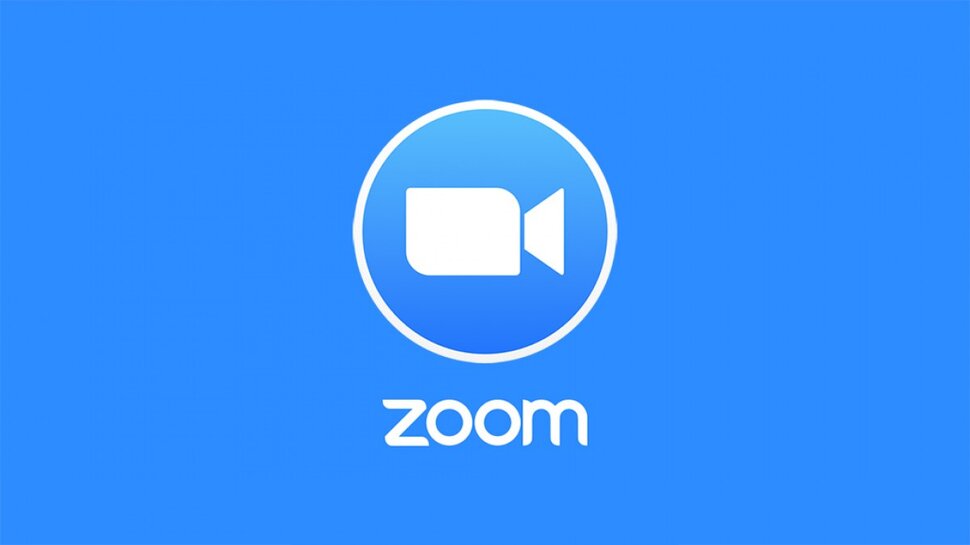
Key Features
Zoom has become a household name for video calling and video conferencing. It offers a wide range of features that cater to both personal and professional needs. You can host group video calls with up to 100 participants on the free plan, making it ideal for family gatherings or team meetings. The app also supports screen sharing, virtual backgrounds, and meeting recordings. Its high-quality voice and video chat ensures clear communication, even in large groups. Zoom’s breakout rooms feature is perfect for collaborative sessions, allowing you to split participants into smaller groups during a call.
Pros and Cons
Pros:
Easy-to-use interface suitable for all users.
Reliable performance for high-quality video and audio.
Advanced features like screen sharing and breakout rooms.
Works seamlessly across devices, including Android, iOS, and desktops.
Cons:
Free plan limits group meetings to 40 minutes.
Occasional security concerns, though improvements have been made.
Pricing and Participant Limits
Zoom operates on a freemium model. The free plan allows unlimited one-on-one video calls and group video calls for up to 40 minutes with 100 participants. Paid plans start at $14.99 per month, offering extended meeting durations, cloud storage, and support for up to 1,000 participants. This flexibility makes Zoom one of the best video chat apps for both casual and professional use.
Google Meet
Key Features
Google Meet stands out as a video calling app designed for seamless integration with other Google services like Gmail and Calendar. It supports high-quality video calls and offers features like live captions, noise cancellation, and screen sharing. You can join meetings directly from your browser without downloading an app, though the mobile app is available for Android users. Google Meet also provides a tiled layout for viewing multiple participants, which is great for group video calls.
Pros and Cons
Pros:
Integration with Google Workspace for easy scheduling and collaboration.
No time limit on calls for personal accounts.
Simple interface with no steep learning curve.
Strong security measures, including encryption.
Cons:
Limited advanced features compared to competitors like Zoom.
Free version caps participants at 100.
Pricing and Participant Limits
Google Meet offers free video calls for up to 100 participants with no time limit for personal accounts. For professional users, paid plans start at $6 per month as part of Google Workspace. These plans increase participant limits to 250 and include additional features like meeting recordings and attendance tracking. If you’re already using Google services, this app is a natural choice for video calling.

Key Features
WhatsApp is one of the most popular video chat apps, known for its simplicity and widespread use. It supports built-in video calling for both one-on-one video calls and small groups. The app offers end-to-end encryption, ensuring your conversations remain private. WhatsApp also allows you to switch between voice and video calls effortlessly. While it doesn’t have advanced features like screen sharing, its ease of use makes it perfect for casual users.
Pros and Cons
Pros:
Free to use with no hidden charges.
End-to-end encryption for secure communication.
Works well on low-bandwidth connections.
Available on Android, iOS, and desktop via WhatsApp Web.
Cons:
Limited to 8 participants in group video calls.
Lacks advanced features like screen sharing or virtual backgrounds.
Pricing and Participant Limits
WhatsApp is completely free, making it an excellent choice for those who want a reliable video calling app without spending money. However, its group video call feature supports only up to 8 participants, which may not be sufficient for larger gatherings. For personal use, WhatsApp remains one of the best android video chat apps due to its simplicity and security.
Microsoft Teams
Key Features
Microsoft Teams is a powerful video calling app designed for both professional and personal use. It integrates seamlessly with Microsoft 365, making it a go-to choice for businesses and organizations. You can host group video calls with up to 300 participants on the free plan, which is perfect for large meetings or virtual events. Teams also offers features like screen sharing, meeting recordings, and live captions. Its built-in video calling functionality ensures smooth communication, whether you're collaborating with colleagues or catching up with friends.
Another standout feature is its chat integration. You can switch between chats and video calls effortlessly, keeping all your communication in one place. Teams also supports file sharing and collaborative document editing during calls, making it ideal for productivity-focused users.
Pros and Cons
Pros:
Excellent integration with Microsoft 365 tools like Word and Excel.
Supports large group video calls with up to 300 participants for free.
Offers advanced features like live captions and meeting recordings.
Works across multiple devices, including Android, iOS, and desktops.
Cons:
The interface may feel overwhelming for new users.
Some advanced features require a paid subscription.
Pricing and Participant Limits
Microsoft Teams operates on a freemium model. The free plan includes one-on-one video calls, group video calls, and collaboration tools for up to 300 participants. Paid plans start at $4 per user per month, offering additional features like extended meeting durations, advanced security, and larger participant limits. If you're already using Microsoft 365, Teams is an excellent addition to your toolkit.
Skype

Key Features
Skype remains a classic choice among video chat apps, offering reliable video calls for personal and professional use. It supports one-on-one video calls as well as group video calls with up to 100 participants. Skype's standout features include screen sharing, call recording, and real-time subtitles. These tools make it a versatile option for both casual chats and business meetings.
Skype also offers cross-platform compatibility. You can use it on Android, iOS, Windows, and even web browsers. This flexibility ensures you stay connected no matter what device you're using. Additionally, Skype allows you to make international voice and video calls to landlines and mobiles at affordable rates, which is a unique feature compared to other apps.
Pros and Cons
Pros:
Reliable performance for high-quality video and audio calls.
Supports up to 100 participants in group video calls.
Offers unique features like international calling to landlines and mobiles.
Works seamlessly across multiple platforms.
Cons:
The interface feels outdated compared to newer apps.
Free version lacks some advanced features like breakout rooms.
Pricing and Participant Limits
Skype is free for most of its features, including one-on-one video calls and group video calls for up to 100 participants. For international calls to landlines and mobiles, Skype offers pay-as-you-go rates or subscription plans starting at $2.99 per month. If you're looking for a simple yet effective video chat solution, Skype remains a solid choice.
Signal

Key Features
Signal is one of the most secure video chat apps available today. It prioritizes privacy with end-to-end encryption for all communications, including video calls. This makes it a top choice for users who value data security. Signal supports one-on-one video calls and group video calls with up to 40 participants, ensuring a safe and private experience.
The app is open-source, meaning its code is publicly available for review. This transparency builds trust among users. Signal also avoids collecting unnecessary data, ensuring your personal information stays private. While it doesn't offer advanced features like screen sharing or virtual backgrounds, its focus on security makes it stand out.
Pros and Cons
Pros:
End-to-end encryption for all calls and messages.
Open-source platform ensures transparency and trust.
Free to use with no hidden charges.
Works well on low-bandwidth connections.
Cons:
Limited to 40 participants in group video calls.
Lacks advanced features like screen sharing or meeting recordings.
Pricing and Participant Limits
Signal is completely free, making it an excellent choice for secure video calling without any cost. Its group video calls support up to 40 participants, which is sufficient for small meetings or family gatherings. If privacy is your top priority, Signal is one of the best android video chat apps you can choose.
Facebook Messenger
Key Features
Facebook Messenger is a versatile app that combines messaging and video chat features. It allows you to make both one-on-one and group video calls with ease. The app integrates seamlessly with your Facebook account, making it simple to connect with friends and family. Messenger also offers fun features like filters, stickers, and reactions during calls, which add a playful touch to your conversations.
Another standout feature is its cross-platform compatibility. You can use Messenger on Android, iOS, and even through a web browser. This flexibility ensures you stay connected no matter what device you’re using. Additionally, Messenger supports high-quality video, ensuring clear and smooth communication.
Pros and Cons
Pros:
Easy integration with Facebook for quick access to contacts.
Fun features like filters and reactions enhance the experience.
Works across multiple devices, including desktops.
Free to use with no hidden charges.
Cons:
Limited privacy features compared to apps like Signal.
Requires a Facebook account, which may not appeal to everyone.
Pricing and Participant Limits
Messenger is completely free to use, making it an excellent choice for casual video calls. It supports group video calls with up to 50 participants, though only six participants are visible on the screen at once. If you’re looking for a fun and accessible app for connecting with loved ones, Messenger is a great option.
Google Duo
Key Features
Google Duo is a simple yet reliable video calling app designed for Android users. It focuses on providing high-quality video calls, even on low-bandwidth connections. Duo’s standout feature is its “Knock Knock” preview, which lets you see who’s calling before you answer. This adds a personal touch to your conversations.
The app supports both one-on-one and group video calls, with a participant limit of up to 32 people. Duo is pre-installed on many Android devices, making it a convenient choice for users. It also works across platforms, so you can connect with friends on iOS or even through a web browser.
Pros and Cons
Pros:
High-quality video performance, even on slower networks.
User-friendly interface that’s easy to navigate.
Works seamlessly across Android, iOS, and web browsers.
Free to use with no subscription fees.
Cons:
Limited advanced features compared to apps like Zoom.
Smaller participant limit for group calls.
Pricing and Participant Limits
Google Duo is entirely free, making it a budget-friendly option for video chat. It supports group video calls with up to 32 participants, which is ideal for small gatherings or casual meetings. If you value simplicity and reliability, Duo is a fantastic choice.
Telegram
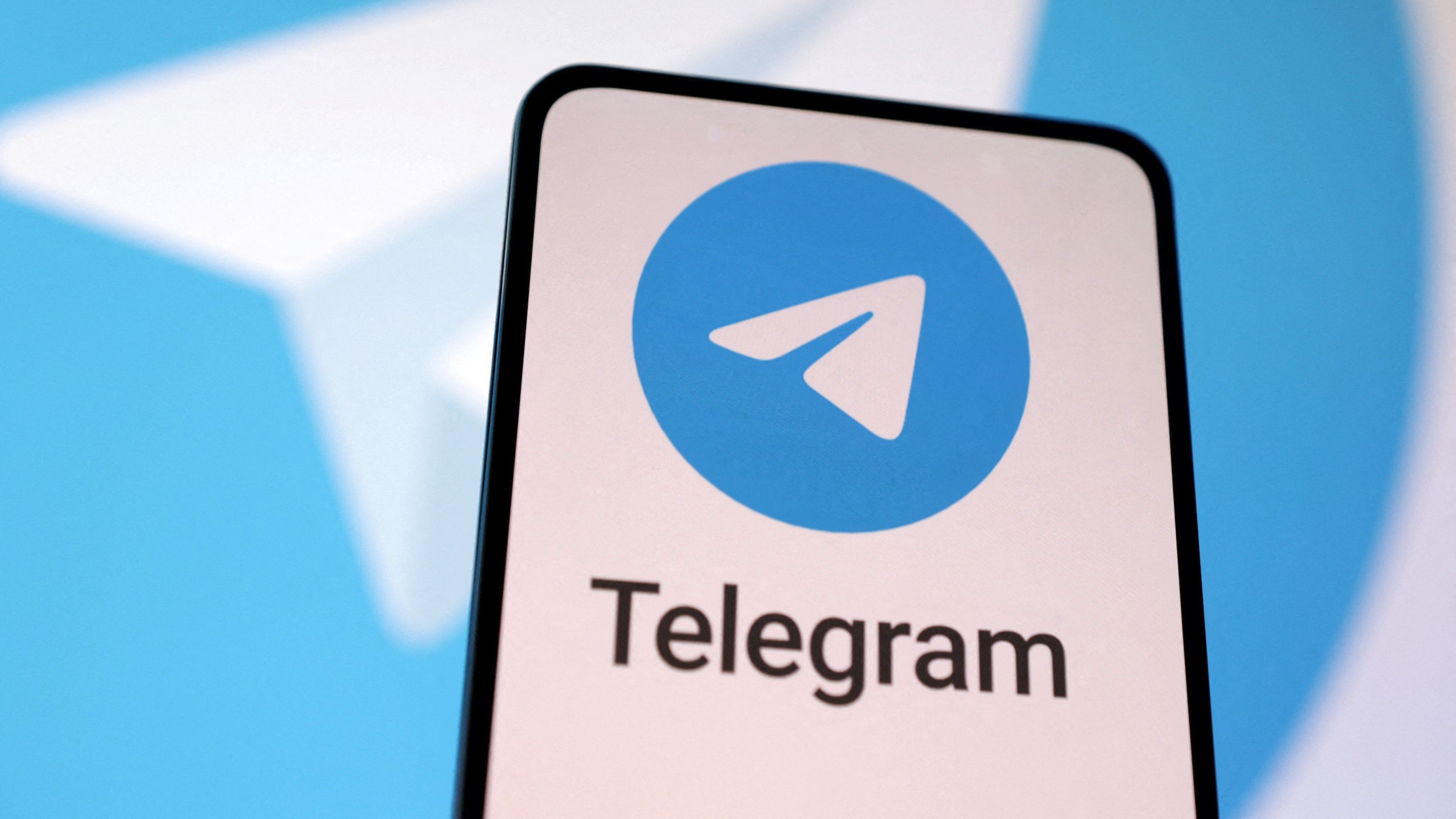
Key Features
Telegram is known for its strong focus on privacy and security. It offers end-to-end encryption for video calls, ensuring your conversations remain private. Telegram supports both one-on-one and group video calls, making it a versatile option for personal and professional use.
The app also includes unique features like cloud storage and file sharing, which enhance its functionality. You can access your chats and calls from multiple devices without losing data. Telegram’s minimalist design ensures a smooth user experience, while its privacy-focused approach makes it stand out.
Pros and Cons
Pros:
End-to-end encryption for secure communication.
Cross-platform compatibility with seamless syncing.
Includes additional features like file sharing and cloud storage.
Free to use with no hidden costs.
Cons:
Limited participant capacity for group video calls.
Lacks advanced features like screen sharing.
Pricing and Participant Limits
Telegram is free to use, offering excellent value for a secure video chat app. It supports group video calls with up to 30 participants, which is suitable for small groups or teams. If privacy is your priority, Telegram is one of the best options available.
Viber
Key Features
Viber offers a blend of messaging and video calling features, making it a versatile communication tool. You can enjoy free video calls with high-quality audio and video performance. Viber also supports group video calls for up to 40 participants, which is great for small gatherings or team meetings. One standout feature is its sticker and GIF library, allowing you to add a fun and personal touch to your conversations.
Another unique aspect of Viber is its public accounts feature. This lets you follow brands, celebrities, or communities directly within the app. Additionally, Viber provides end-to-end encryption for all calls and messages, ensuring your privacy stays intact. You can also use the app across multiple devices, syncing your chats seamlessly.
Pros and Cons
Pros:
High-quality video and audio performance.
Fun features like stickers, GIFs, and public accounts.
Works across Android, iOS, and desktop platforms.
Cons:
Group video calls are limited to 40 participants.
Some advanced features require a strong internet connection.
Pricing and Participant Limits
Viber is free to use for most of its features, including one-on-one video calls and group video calls. However, it also offers a Viber Out service for making international calls to non-Viber users at affordable rates. If you’re looking for a secure and fun app for personal or small group use, Viber is an excellent choice.
Tango
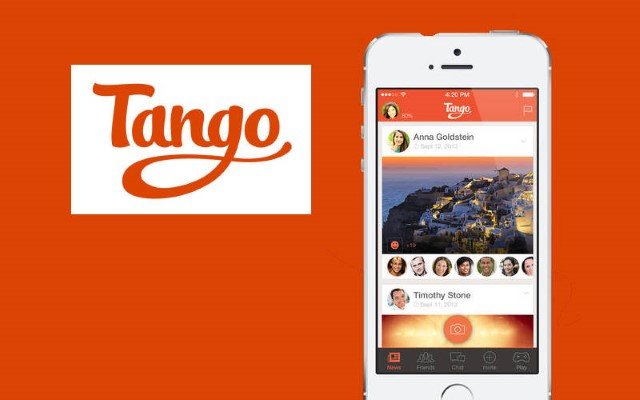
Key Features
Tango combines video calling with social networking, offering a unique experience. You can make free video calls with friends and family while enjoying features like live streaming and interactive games. Tango’s live streaming feature allows you to broadcast yourself to a global audience, making it more than just a video chat app.
The app also includes a discovery feature, helping you connect with new people who share your interests. Tango supports group video calls, though the participant limit is smaller compared to other apps. Its user-friendly interface ensures smooth navigation, even for first-time users.
Pros and Cons
Pros:
Combines video calling with social networking.
Offers live streaming and interactive games.
User-friendly design suitable for all ages.
Free to use with no hidden charges.
Cons:
Limited participant capacity for group video calls.
Privacy features are not as robust as apps like Signal.
Pricing and Participant Limits
Tango is free for basic video calling and social features. Some premium options, like virtual gifts during live streams, require in-app purchases. Group video calls are limited to a smaller number of participants, making it better suited for casual use. If you want a mix of video chatting and social interaction, Tango is worth exploring.
Comparison of the Best Android Video Chat Apps

Features Comparison
When it comes to features, each app brings something unique to the table. Zoom stands out with its advanced tools like breakout rooms, virtual backgrounds, and whiteboards. These features make it ideal for professional meetings or collaborative sessions. Google Meet, on the other hand, integrates seamlessly with Google Workspace, offering tools like noise cancellation, live captions, and in-call chat. It’s perfect if you already use Gmail or Google Calendar.
For casual users, WhatsApp and Facebook Messenger keep things simple. WhatsApp focuses on secure one-on-one and small group video calls, while Messenger adds a playful touch with filters and reactions. If privacy is your priority, Signal and Telegram offer end-to-end encryption, ensuring your conversations stay private. Signal even goes a step further by being open-source, which builds trust among users.
Looking for something fun? Tango and JusTalk include interactive features like games and doodling, making them great for lighthearted chats. Meanwhile, Skype and Viber cater to both personal and professional needs with features like screen sharing and international calling. Each app has its strengths, so your choice depends on what you value most—whether it’s security, simplicity, or advanced tools.
Pricing and Participant Limits Comparison
Pricing plays a big role in choosing the right app. Many apps, like Google Duo, Signal, and Telegram, are completely free. These options are great if you want reliable video calls without spending a dime. WhatsApp and Facebook Messenger also fall into this category, offering free services with no hidden costs.
If you need more participants or advanced features, freemium models like Zoom and Microsoft Teams are worth considering. Zoom’s free plan supports up to 100 participants for 40 minutes, while its paid plans start at $14.99 per month, allowing longer meetings and larger groups. Similarly, Microsoft Teams offers free group calls for up to 300 participants, with premium plans starting at $4 per user per month.
For larger gatherings, Google Meet provides free calls for up to 100 participants with a one-hour limit. Upgrading to a Google Workspace plan increases participant capacity to 250 and unlocks features like meeting recordings. Skype and Viber also offer free group calls, but Skype includes affordable international calling options, starting at $2.99 per month.
Here’s a quick breakdown:
Free Options: Google Duo, Signal, Telegram, WhatsApp, Facebook Messenger.
Freemium Models: Zoom, Microsoft Teams, Google Meet.
Affordable Premium Features: Skype, Viber.
Security and Privacy Comparison
In today’s digital world, security matters more than ever. Apps like Signal and Telegram lead the pack with their strong focus on privacy. Both offer end-to-end encryption, ensuring only you and the person you’re talking to can access the conversation. Signal’s open-source nature adds an extra layer of transparency, making it a top choice for privacy-conscious users.
WhatsApp also provides end-to-end encryption, making it a secure option for personal use. However, apps like Facebook Messenger and Tango don’t prioritize privacy as much, which might be a concern if you’re sharing sensitive information.
For professional settings, Zoom and Google Meet have made significant improvements in security. Zoom now includes features like meeting passwords and waiting rooms to prevent unauthorized access. Google Meet encrypts all calls and offers robust admin controls, ensuring a safe environment for large meetings.
If you’re looking for a balance between security and usability, Viber is a solid choice. It encrypts all calls and messages while offering fun features like stickers and GIFs. Ultimately, your choice should align with how much you value privacy and what kind of conversations you’re having.
Choosing the right app from the best Android video chat apps depends on your needs. For personal use, WhatsApp, Messenger, and Duo offer simplicity and reliability. If you’re looking for professional tools, Zoom, Microsoft Teams, and Google Meet provide advanced features like large group meetings and seamless collaboration. Privacy-conscious users will appreciate Signal and Telegram for their strong encryption and secure video calling. Each app excels in its own way, so think about what matters most to you—whether it’s security, ease of use, or professional functionality—and pick the one that fits your lifestyle.
FAQ
What is the best Android video chat app for privacy?
If privacy is your top concern, Signal and Telegram are excellent choices. Both apps offer end-to-end encryption, ensuring your conversations stay secure. Signal goes a step further by being open-source, which means its code is available for public review. This transparency builds trust and guarantees strong privacy measures. Telegram also provides encrypted video calls and supports up to 30 participants broadcasting video simultaneously, making it a versatile option.
Which app is best for group video calls?
For large group video calls, Zoom and Microsoft Teams stand out. Zoom allows up to 100 participants on its free plan and offers advanced features like breakout rooms and screen sharing. Microsoft Teams supports up to 300 participants for free, making it ideal for professional meetings or virtual events. If you’re looking for something simpler, Google Duo recently increased its group-calling limit to 12 participants, offering a reliable option for smaller gatherings.
Can I use these apps on multiple devices?
Yes, many of these apps support cross-platform compatibility. Telegram and Skype sync seamlessly across Android, iOS, and desktop devices, ensuring you can switch between devices without losing data. Facebook Messenger also works on mobile and desktop, making it easy to stay connected wherever you are. For Android users, Google Duo is pre-installed on many devices and works across platforms, including web browsers.
Are there any free video chat apps?
Absolutely! Many of the best video chat apps are free to use. WhatsApp, Google Duo, Signal, and Telegram provide free video calling without hidden charges. Facebook Messenger also offers free video calls with fun features like filters and reactions. These apps are perfect if you want reliable communication without spending money.
Which app is best for casual video chats?
For casual chats, WhatsApp, Facebook Messenger, and JusTalk are great options. WhatsApp keeps things simple with secure one-on-one and small group video calls. Facebook Messenger adds a playful touch with features like stickers, filters, and reactions during calls. JusTalk takes it further by offering interactive features like doodling and games, making conversations more engaging.
What app should I use for professional meetings?
For professional use, Zoom, Microsoft Teams, and Google Meet are top choices. Zoom offers tools like virtual backgrounds, meeting recordings, and breakout rooms, making it ideal for team collaboration. Microsoft Teams integrates with Microsoft 365, allowing you to share files and edit documents during calls. Google Meet works seamlessly with Google Workspace, providing features like live captions and noise cancellation for a polished meeting experience.
Can I make high-quality video calls on a slow internet connection?
Yes, some apps are optimized for low-bandwidth connections. Google Duo is known for its ability to deliver high-quality video calls even on slower networks. Signal and WhatsApp also perform well in low-bandwidth situations, ensuring smooth communication without interruptions. These apps are perfect if you’re in an area with limited internet speed.
Are there apps with fun features for video calls?
If you want to add some fun to your video calls, try JusTalk, Tango, or Facebook Messenger. JusTalk includes features like real-time doodling, stickers, and GIFs. Tango combines video calling with social networking, offering live streaming and interactive games. Facebook Messenger lets you use filters and reactions during calls, making conversations more lively and entertaining.
What app is best for secure group video calls?
For secure group video calls, Signal and Telegram are excellent options. Signal supports group video calls with up to 40 participants, ensuring all communications remain private. Telegram allows up to 30 participants broadcasting video simultaneously and includes strong encryption for added security. These apps are perfect if you want to prioritize privacy while connecting with a group.
Can I use these apps for messaging as well?
Yes, many of these apps double as messaging platforms. Telegram, WhatsApp, and JusTalk offer instant messaging alongside video calling. Telegram includes features like file sharing and cloud storage, while JusTalk supports text, images, videos, and even voice messages. Facebook Messenger combines messaging and video chat, making it a versatile choice for staying connected.







